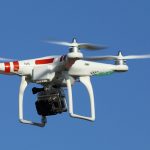
Health surveillance: Engineers unveil smart wristband that broadcasts your health and environmental data to a phone through Wi-Fi
Sunday, October 21, 2018 by Isabelle Z.
http://www.privacywatch.news/2018-10-21-smart-wristband-shares-health-and-environmental-data-to-phone.html

Just when you thought that tracking humans through technology couldn’t get any worse, engineers have developed a smart wristband that uses a wireless connection to smartphones to power a new generation of devices that monitor personal health and environmental data.
In a study that was published in the journal Microsystems and Nanoengineering, researchers from Rutgers University New Brunswick explained their new technology. They say it’s like a Fitbit, only with far more capabilities. The wearable devices on the market now can measure heart rate and exercise activity; the new invention can count particles including blood cells, inorganic and organic particles in the air, and bacteria.
Their device is a plastic wristband equipped with a flexible circuit board. It contains a biosensor with a pipe that is thinner than human hair and gold electrodes. The circuit processes electrical signals, and there’s also a microcontroller for digitizing data as well as a Bluetooth module to wirelessly transmit the data.
Pinpricks are used to obtain the blood samples, and the blood is then sent through the channel, where the cells are counted. This data is sent wirelessly to smart phones, where apps can process and display the resultant data.
The researchers are excited about the potential uses of this technology. For example, they say that doctors can get blood test results from patients very quickly and spot problems such as the low blood cell counts that point to problems like internal bleeding and leukemia. It could also help keep tabs on air pollution and show people how much dust or other particles they are exposed to.
How far will it go?
At the same time, however, technology is becoming an incredibly invasive and developments like this are as exciting as they are worrying. For example, Google is already tracking its users’ whereabouts – even when they’ve used the privacy settings that ostensibly prevent them from doing so.
An Associated Press investigation found that Google apps automatically store people’s timestamped location data, even when location history has been turned off. Indeed, searches on terms that are completely unrelated to a person’s location can pinpoint where they are geographically, including their precise longitude and latitude, and store it in their Google account.
It was also recently revealed that more than 250 gaming apps use monitoring software that turns on your device’s microphone to record audio signals in TV shows and ads that you have on in the background to improve ad targeting.
If these companies are this eager to get your personal and location information and find out what you watch on TV, imagine what they will do when your real-time medical information is floating around on the Internet – and what hackers might do with such information.
The FDA recently approved a tracking device that drug companies can place inside pills to monitor whether patients are taking all of the drugs they are prescribed. They claim it’s a great way to ensure that psychiatric patients are remembering to take their medications, but the idea of swallowing microchips is deeply concerning. The fact that the FDA was willing to greenlight these chips doesn’t bode well for the future.
The latest efforts by the Rutgers researchers undoubtedly have the potential to help a lot of people, but this convenience comes at a very steep price.
See more reports on medical technology at MedicalTech.news.
Sources for this article include:





